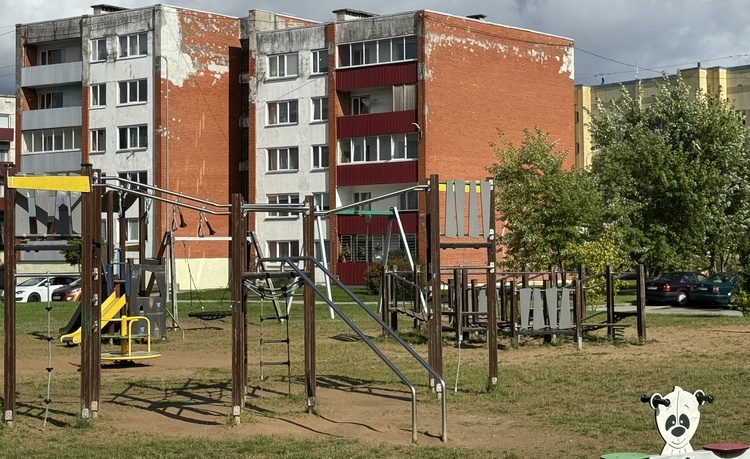
Young Researchers Explore Outdoor Games as Intangible Cultural Heritage
Do you remember childhood games such as "hide-and-seek", "tag"? Perhaps there were even unique games invented and played only in your own courtyard? A team of young researchers from the Latvian Academy of Culture has launched fieldwork for the research project “Outdoor games: research and actualization of intangible cultural heritage in contemporary Latvia” As part of this project, they are asking these and other questions to study outdoor games as a part of Latvia’s intangible cultural heritage. The research explores the social and cultural-historical significance of these games and considers ways they can be preserved and revitalized in today’s society.
On September 19–20, the project team – Laura Brutāne, Vendija Kokare, and Una Žeimute – visited Aizkraukle, where they walked through the town, visited the courtyards of many apartment buildings, and conducted interviews with middle-aged and senior residents. Aizkraukle was chosen because of its cultural and historical context: the town is relatively young, developed as a residential area for workers, and therefore rich in multi-storey building courtyards – environments where courtyard game traditions thrived for many years.
To document the courtyard games popular in Latvia in the second half of the 20th century and the residents’ childhood memories, the young researchers tried out the walkabout method – talking with residents while walking through courtyards and places connected to their childhood. Even after the first field trip, this method has already revealed both its advantages and its challenges.
Fieldwork in Aizkraukle will continue at the end of September and in October. The project team sincerely thanks the residents of Aizkraukle for their responsiveness, hospitality, and willingness to share their memories and guide them along the trails of their childhood games.
The project “Courtyard Games: Research and Revitalization of Intangible Cultural Heritage in Contemporary Latvia” is implemented with the financial support of the Latvian Academy of Culture. Project leader: Laura Brutāne, Research Assistant at the Institute of Arts and Cultural Studies of LAC and Coordinator of the Young Researchers’ School. The project team consists of second-year students of the LAC program “Cultural and Sociology Management” and participants of the Young Researchers’ School – Vendija Kokare, Una Žeimute, and Laila Ozola
